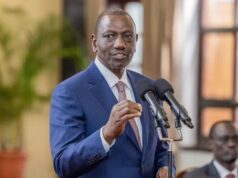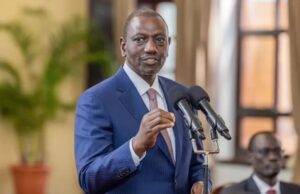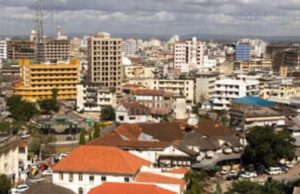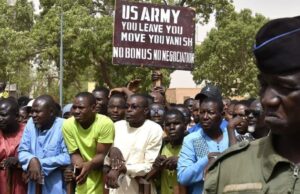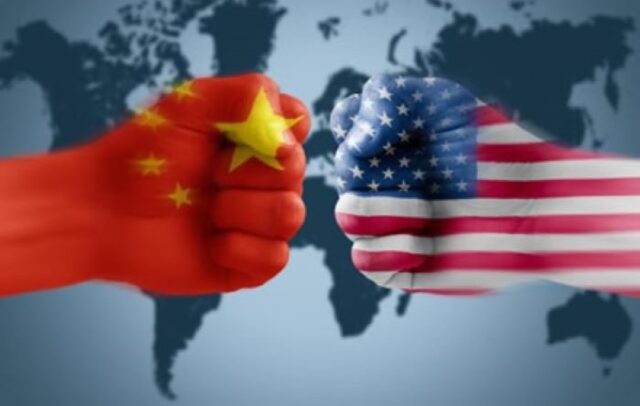
The New Year unfolded with a flurry of high-ranking diplomatic visits to Africa by China and the US. In 2024, for the 34th consecutive year, China continued its tradition of sending its Foreign Minister to Africa for his first overseas trip. From Jan. 13-18, Wang Yi’ toured Egypt, Tunisia, Togo and Cote d’Ivoire.
Chinese diplomacy is often regarded as opaque but extremely cautious and far-sighted. The choice of the continent as the first stop on his international tour once again, political analysts say has both political and economic significance.
Politically, China is amid a near-strategic confrontation with the West on several issues, particularly, Taiwan. African countries’ support is therefore critical for China in international forums. On the economic front, the trade war with the West has dented China’s economic growth. Xi Jinping’s pet project, the Belt and Road Initiative (BRI) is envisioned to stimulate trade and economic growth by connecting Asia with Africa and Europe. Africa is a strategic partner of China in BRI.
Look closer, and the choice of the four countries- two Arab and two Sub-Saharan- is very pertinent. Egypt was chosen as the first stop, given its potential to play a strategic role in diffusing tensions in the Middle East and the Red Sea. The escalating crisis around the critical international trade route is a matter of grave concern for China. It also signals China’s desire to play a more prominent role on the global stage in terms of the Israel-Hamas war by rallying with the Global South. More recently, Egypt, a traditional US ally, has joined the BRICS, setting the stage for enhanced economic ties and investments from China. Tunisia, his next stop, acquires importance as a Mediterranean anchor, for China’s Silk Roads to Europe. The two Sub-Saharan countries, Togo and Cote d’Ivoire which he visited next were former French Colonies, currently moving away from French dominance.
Notably, in West Africa, China is projecting itself as a diplomatic and economic alternative to the US, France, and other traditionally influential European nations. In short, this tour transcended traditional partnerships, unveiling the future trajectory of Africa-China collaboration.
Soon after Minister Wang Yi wrapped up his visit to Africa, US Secretary of State Antony Blinken landed in Africa for a four-country tour from Jan 21- 26. He visited three countries in West Africa, Cabo Verde, Nigeria, Côte d’Ivoire, and one in southern Africa, Angola. Simultaneously, US Ambassador to the United Nations, Linda Thomas-Greenfield was visiting three other West African nations – Guinea-Bissau, Sierra Leone, and Liberia. According to analysts, US diplomats’ visits in a row essentially reflected Washington’s desire to reaffirm economic and security partnerships in regions where China and Russia have started dislodging Western domination.
With the deteriorating security situation and military takeovers in the Sahel region, the US base in Niger has also come under the cloud. Niger had been the centre of US efforts to counter armed groups in the Sahel with a USD 100m base in the desert city of Agadez to fly a fleet of drones. It was reported that as the relations between Washington and Niamey have soured, the US is scouting for a new location in West Africa for a drone base.
Some generous financial packages were also announced during the visit. The US had already extended nearly USD 150m through the Millennium Challenge Corporation to expand the port in the capital Praia, Cape Verde. Last month, the US government announced that it would work with Cape Verde on a third package. In Ivory Coast, Blinken announced an additional USD 45 million to help coastal West Africa prevent conflict and promote stability. With Angola, the US plans to enhance its cooperation in railway infrastructure projects, outer space exploration, and military assistance. In Nigeria, Blinken reiterated the US commitment to continue as a security partner to fight against Islamist insurgents in West Africa.
Over the years, Washington’s priority in Africa was military intervention and counterterrorism. In the process, it is alleged that it has bagged millions of dollars in arms sales. Meanwhile, China’s focus was developing infrastructure, in so-called debt diplomacy, primarily to build access to Africa’s natural resources.
High-profile visitors will continue to come to Africa and vax profusely about their noble plans to uplift the continent. It is up to the African leaders to sift through their proclamations and negotiate and benefit from their rivalry.



